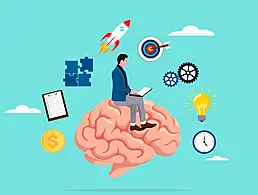Data analysis, UX design and a learning mindset are some of the most in-demand skills for rapidly evolving tech workplaces, according to BearingPoint’s Claudia Carr.
The European Commissioned has declared 2023 the European Year of Skills with a special focus on the development of skills within the workforce to support sustainable growth, innovation and improve competitiveness. But what does this mean for the IT sector? What are the skills of the future? How can organisations build capability when there is such a rapid pace of change?
Technology trends driving skills demand
Increased levels of connectivity, improved processing speeds and cloud technologies have been key enablers for the continuous growth of, and demand for, digital services. Agile delivery methods and practices have helped to accelerate the pace of change and development. This is driving an increased level of demand for a range of technical skills, which includes the following:
Platform development
Cloud-based native platforms feature in the product roadmaps for most software providers’ offerings. Platforms comprise of a core technical infrastructure, reusable building blocks and various applications. More established offerings provide open integration standards to allow their wider partner ecosystem to develop and deploy new components on their environments. Development is driven by agile teams working in sprints to continuously improve and enhance offerings. This includes sustainability and privacy by design.
Data analysis
The availability of data has grown exponentially, providing ever increasing opportunities to gain insights. This requires skills to both manage and interpret different data sets and leverage storytelling techniques to bring insights to life. A blend of skills in communications, data strategy, development languages and data visualisation are required.
User experience
As organisations increasingly adopt a digital-first approach to service delivery, customer experience becomes a critical differentiator. Design must consider human-computer interaction and ease of usability for all. This is driving demand for skills in service design and accessibility. Similarly, the advancements in augmented reality (AR) and virtual reality (VR) will bring demand for skills in the design of virtual worlds and digital assets.
Cybersecurity
With increasing levels of online crime and fraud, cybersecurity skills will continue to be in demand. Executive-level roles include responsibility for assessing vulnerability, defining and implementing security strategy and achieving standards compliance through process and policy adoption. Skills in demand include network and application security, governance and cloud-provider-specific security capabilities.
‘Innovation within the technology sector has been fuelled by collaboration’
AI and machine learning
The advancements made in artificial intelligence (AI) technology have been extensive. This bring both opportunities and challenges to the tech sector. There will continue to be developments in how AI is used and how its use is detected. This requires not only technical skills, but also skills in policy and standards development.
Architecture and design
Skills are required to help map technologies to support business ambition and strategy in a stepwise and sustainable way. As technology matures, it can threaten existing business models and indeed realise new ones. Technology architects must establish and maintain a continuous learning approach to stay current and relevant to support organisations adopt the right technologies at the right time.
But will these skills still be relevant in 3, 5 or 10 years? While the headline topics may still feature, the pace of change is such that the underlying skills required will have evolved in line with a constant rate of technological change.
Therefore, some of the most critical skills for those working in the tech sector will be flexibility, ability to innovate, to problem-solve and, most importantly, to learn.
The human factor
As with many industries, people skills remain critical. Innovation within the technology sector has been fuelled by collaboration. Shorter delivery cycles are attributed to the use of agile, self-directed teams, communicating effectively and working jointly towards a common goal. Team members will be called upon to use their critical-thinking and problem-solving skills to address issues as they arise. Knowledge management systems are used to capture experiences which will inform future work, including the development of standards, policies and regulations.
The tech sector has developed because people from different backgrounds have shared insights and experiences and worked together. For many of us, this is part of how we learned. However, many of the newer entrants to the workforce are coming out of a period of remote learning. They have had less exposure to collaborative working and learning practices. While they are bringing an understanding of new technologies, innovation and have a more entrepreneurial mindset, they will have other learning needs when entering the workplace.
Rethinking the learning journey
Learning – that’s easy, right? Unfortunately, as we become more comfortable in our roles, it can lead to a reduction in those traits that made us knowledgeable in the first place. Skills such as observing, asking questions, experimentation and persistence are abundant in children. These are exactly the skills required to support growth and development within our rapidly changing workplaces.
Continuous learning is essential in the tech sector, but training structures have not always kept up with the pace of change. There are a range of alternative approaches for the development of both soft and technical skills which provide more appropriate structures to support skills and competency development within the tech sector including:
Self-directed learning
For most of us, YouTube and Google are the go-to sites when seeking an answer to “How do I … ?”. Where suitable resources are not available in house, clear guidance is required on what is and is not an appropriate source, and how people should or should not engage with external platforms.
Communities of practice
Collaboration and strong professional networks are known to improve quality, outcomes and innovation. Effective peer support groups and communities of practice can be used to rapidly share learning, call for support regarding challenges and provide alternative viewpoints. These can operate through collaboration platforms, but also include a more structured knowledge-sharing element. This includes co-development of learning content on a topic or sharing of case studies.
Feedback mechanisms
Open communication is critical for learning and growth at all levels. This includes having the confidence to ask questions and deliver constructive feedback. Acting on feedback is a key part of the learning journey and feedback mechanisms should form part of any team structure and mentoring process (including reverse mentoring which is equally important within the tech sector). Those giving guidance should not only focus on the key results and outcomes, but also the supports to be made available to enable success.
Experimentation\experiential learning
Over 70pc of learning in the workplace comes from application and experimentation. You will often learn more from failures than successes. It is therefore important to create safe spaces for learning and experimentation. This will provide the opportunity to test new technologies and techniques. Boundaries can be tested and experience from failures captured in lessons learned to support future innovation and learning. In addition, these environments provide opportunities to work with different people and gain different perspectives of the same challenge.
Building for the future
Change is the only certainty in the tech sector. However, regardless of how technology evolves, there will always remain a core set of people skills that will form the critical core of any technology team’s capability. Leveraging core systems and creating safe spaces to experiment and learn will help tech organisations continuously upskill their teams and collectively address learning needs in line with skills demands.
By Claudia Carr
Claudia Carr is a partner in the BearingPoint People and Strategy Practice in Ireland.
10 things you need to know direct to your inbox every weekday. Sign up for the Daily Brief, Silicon Republic’s digest of essential sci-tech news.




